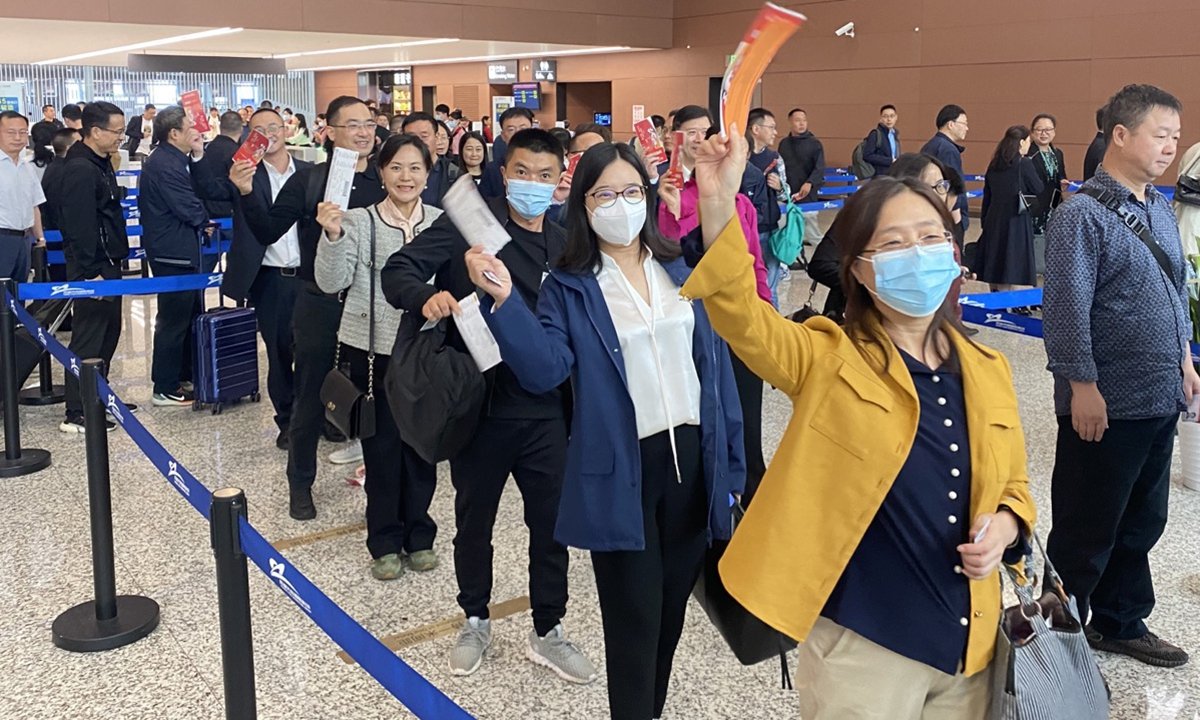As the 18th national congress of Chinese trade unions convenes in Beijing, there’s a notable shift in the composition of delegates. Over 20% of the selected delegates now represent workers in emerging roles such as delivery personnel and ride-hailing drivers, signaling a heightened focus on safeguarding their legal rights and interests within the labor landscape.
The All-China Federation of Trade Unions (ACFTU) has orchestrated this significant event, gathering a total of 2,002 delegates from 35 delegations across the nation. This congress, held every five years as mandated by the ACFTU’s constitution, holds the promise of revising key labor laws and electing new leadership for the organization.
A remarkable aspect of this congress is the increased representation of grassroots and frontline workers, constituting 68.3% of the delegates. This percentage reflects a 3.2% uptick from the 17th congress in 2018. More notably, 22.4% of the delegates hail from the realm of new economic and social organizations, or are engaged in novel forms of employment. This diversity augments the congress’s representativeness, ensuring that the voices of workers in these emerging sectors are heard and their interests upheld.
Among these delegates is Zhu Jingtao, a delivery person from the city of Wuzhong in the Ningxia Hui Autonomous Region. On the day of the Mid-Autumn Festival, Zhu embarked on a mission to meet with over 20 managers and employee representatives from leading express delivery companies such as Yuantong, Jitu, and Shentong. His goal was to bring the concerns and perspectives of frontline workers to the forefront of the congress’s agenda.
Zhu’s proposals include advocating for unmanned 24-hour open service stations for outdoor workers, expediting the establishment of a comprehensive physical examination system for delivery personnel, and creating a support platform for workers in novel employment sectors. His dedication mirrors the sense of responsibility felt by many delegates, tasked with representing the interests of their respective worker communities.
Fang Ou, another delegate, represents online ride-hailing drivers at the congress. Fang hails from South China’s Guangdong Province and serves as the chairman of the Guangzhou Online Ride-Hailing Industry Trade Union Federation. With approximately 20,000 drivers under his purview, Fang is committed to defending the drivers’ right to fair compensation. He has submitted relevant proposals aimed at achieving this objective.
Beyond the provincial-level trade unions, delegates from sectors such as railway, civil aviation, and finance, as well as the trade union federation of central and state organs, will also be present. Additionally, the congress has invited 60 specially chosen delegates and 50 guests from the special administrative regions of Hong Kong and Macao.
The inclusion of workers engaged in novel employment forms within the congress’s delegate pool underscores the Chinese trade unions’ commitment to upholding the labor rights and interests of this burgeoning demographic. This focus not only benefits the workers themselves but also contributes to the compliant operation of platforms and enhances their competitiveness, thereby fostering the high-quality development of the Chinese economy. Law professor Liu Junhai from Renmin University of China, an invited guest at the congress, shared these insights.
In late March, the ACFTU reported that a staggering 84 million workers in China are engaged in new forms of employment. This group primarily comprises truck drivers, ride-hailing drivers, couriers, and food delivery personnel, with a significant proportion being young to middle-aged males.
Liu Junhai emphasized that the ACFTU is actively expanding and modernizing its responsibilities to better serve and protect the majority of workers while accommodating their reasonable demands to align with the evolving labor landscape. This approach aims to unleash the enthusiasm, creativity, and positivity of these workers, ultimately fostering a more inclusive and responsive labor environment.
In conclusion, the 18th national congress of Chinese trade unions symbolizes a shift toward a more inclusive representation of workers, particularly those in emerging sectors. The focus on safeguarding the rights and interests of these workers reflects the dynamism of the Chinese labor landscape, as well as the commitment of trade unions to adapt and protect the evolving workforce.
Read More:
